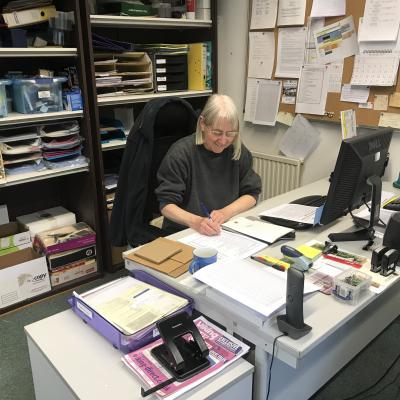Chrome Tabs Keep Auto-Refreshing? Here's How to Fix It
Auto-refresh is irritating at the best of times, but it can seriously derail your workflow if left unattended to.
If you have a lot of tabs open, your system might run low on memory, so Chrome keeps refreshing those tabs. If you’re in a hurry to find a piece of certain information, you know how annoying it is to wait for a tab to reload.
Don't worry if it's getting on your nerves, though, because we'll discuss the solutions below.
Why Does Google Keep Refreshing Tabs?
Chrome uses a lot of your system RAM. So the browser is set to remove the data of any open and loaded tab to prevent high memory usage.
While it’s better to wait for a few seconds instead of dealing with a constantly slowing down, or even crashing system, it can be frustrating—especially if the auto-reloading tab causes you to lose your work progress.
Fortunately, there are a few tricks you can try to save your time and keep you stress-free when dealing with Chrome’s auto-refreshing tabs.
1. Restart Google Chrome
As always, when dealing with a faulty program, the first troubleshooting solution is to restart it. But simply clicking Close and relaunching Google Chrome might not fix your auto-refreshing tabs problem. Launch Task Manager and close any background process that Chrome is still running.
2. Check Google Chrome Extensions
Chrome comes with a lot of available extensions designed to improve your browsing experience. And if you can’t one that fits your needs, you can create your own Google Chrome extension.
While they make your life easier, sometimes browser extensions might lead to all sorts of issues, including auto-refreshing tabs. To fix it, click the three-dot menu from the top-right corner and head to More tools > Extensions.
There, disable all extensions and re-enable them one-by-one to identify the problematic extension.
If you have a lot of installed extensions and don’t want to go through a lengthy process, you can use Chrome’s built-in Task Manager. This way, you can check which extension is using a lot of RAM.
To access the task manager, open the browser’s menu and click More Tools > Task Manager. Once you find an extension or tab that hogs your system resources, select it and click End process.
3. Use an Extension
If your system has enough resources, you can install the Tab Auto Refresh extension to take control of your tabs.
Tab Auto Refresh allows you to set the time you want to automatically reload your tabs. So you can stop certain tabs from reloading for a long time or have them reload once every few seconds if you’re waiting for a big update or announcement.
To set the refresh timer, open the tab and click the extension icon. Then, you can put in the time interval to refresh the tab or completely stop it. Also, you can choose to reset the tab and bypass the cache when reloading.
Download: Tab Auto Refresh (Free)
4. Disable Automatic Tab Discarding
If you’re confident your system has enough resources but don’t want to install another extension, there’s a different method you can use to stop Chrome from auto-reloading tabs.
Head to chrome://discards to find a list of your active tabs. To stop one of the tabs from reloading when switching between them, uncheck the Auto Discardable option.
Keep in mind this is not a permanent solution. If you close a tab and re-open it, you’d have to go through the above steps again to keep it from refreshing.
5. Run SFC Scan
If you’re on a Windows computer, Chrome could keep auto-refreshing tabs because of a corrupt system file. In this case, running the System File Checker should fix the problem.
Launch Command Prompt with administrative privileges, type sfc/ scannow, and press Enter. Wait until the scan is complete and check if you can use Chrome without interruptions.
6. Reset Google Chrome
If you didn’t have any luck with the previous solutions, you can reset Chrome. Before doing so, keep in mind that it will remove every installed extension, history, and cache data.
To reset Chrome, navigate to chrome://settings/reset. Then, click Restore settings to their original defaults > Reset settings.
No More Auto-Refreshing Tabs
Hopefully, one or more of the solutions helped you fix the problem. Usually, Chrome keeps reloading tabs because of low system resources. If you run into this problem often, you should consider upgrading your computer or switching to a browser that doesn’t need so many resources.
Source: MUO








